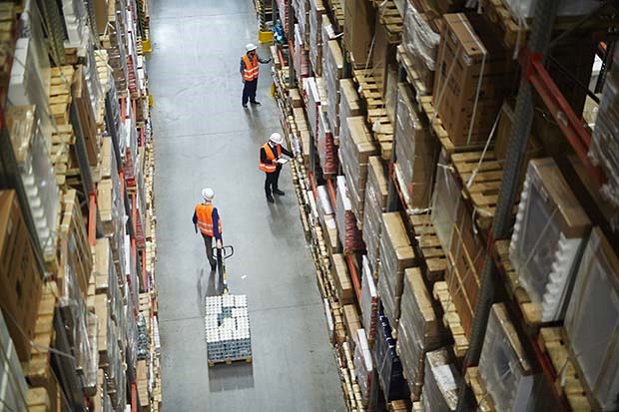Leading warehousing, logistics and fulfilment platform Trident Worldwide is taking control after Covid-19 sees warehouse capacity stretched. 
The end-to-end logistics platform harnesses the power of data and artificial intelligence to produce a single digital dashboard which enables full control of both stock and logistics. For warehouses that have space readily available, becoming part of Trident’s flexible network of warehouses means space is used more efficiently, with the platform sourcing just the space businesses need, where and when they need it. The platform’s warehouse and fulfilment network also connects to managed marketplaces meaning those looking to scale up are able to do so quickly and effectively.
In a year that has seen record breaking demand, the COVID-19 pandemic has unleashed a huge uptick in flexible requirements for both industrial and logistics assets. Just six months after the World Health Organisation (WHO) declared the Covid-19 outbreak a global pandemic, the warehouse and logistics space as we know it has had to evolve rapidly and with it, changes have had to be made.
With little warning and with minimal choice, businesses and warehouses alike have had to adapt to an entirely new set of circumstances, with panic buying, stock piling and rationing of stock and supplies seeing consumer behaviour changed overnight.
It was during the earliest stages of lockdown in March 2020 that demand began to rise, with the following months seeing record-breaking statistics; yet still the demand for warehouse space may not have yet reached its pinnacle. The year thus far has seen businesses seeking additional storage for varying goods, ranging from food to cleaning materials, packaging, and consumer products in an effort to ensure stocks do not run low. Yet with a growing trend in cases and the threat of, at the very least, local lockdowns very much present, it’s anticipated that rising demand for warehouse space is only going to increase further.
It’s because of this that one question remains; how do we take back control of our warehouse space and what have we learned from the initial surge which can now be implemented to prepare warehouses for what’s to come?
The answer is two-fold, with processing requiring change for both the short and long-term. If the short-term goal is to prepare for an increase in space to support the ever-growing demand of businesses and the consumer during a pandemic, the long-term goal is to ensure that the industry is always ready to adapt to any changes, small and large scale, at any one time in the future.
To facilitate this, an overhaul of the way that freight and logistics is managed could well be necessary, so that warehouses will be able to pivot and adapt readily to any new circumstance that may arise.
Trident Worldwide’s CEO, Arjun Thaker explains “For warehouse space to be used at it’s optimum, it’s key that those in decision-making positions have complete, transparent access to each individual cog within the supply chain.
We’re able to provide unrivalled support, whether that be through sourcing additional space for more flexible warehousing, filling empty spaces to support warehouse owners’ income or even providing the top cloud-based WMS platforms in order to help optimise operations and improve efficiency – our advanced technology platform helps automate and enhance all operations.”
Adapting to a new-age in logistics management is set to be key in order to stop warehouse capacity combusting, whilst also being able to meet the new-found demand of the consumer. With further demand challenges and an impending Brexit decision on the horizon, there’s no better time to re-evaluate processes and make positive change for the future of logistics.
Trident Worldwide t: 0116 216 6365 e: info@trident-ww.com w: www.trident-ww.com





Comments are closed.